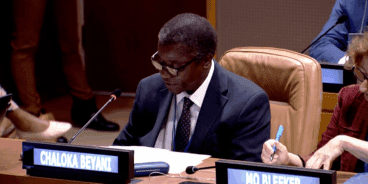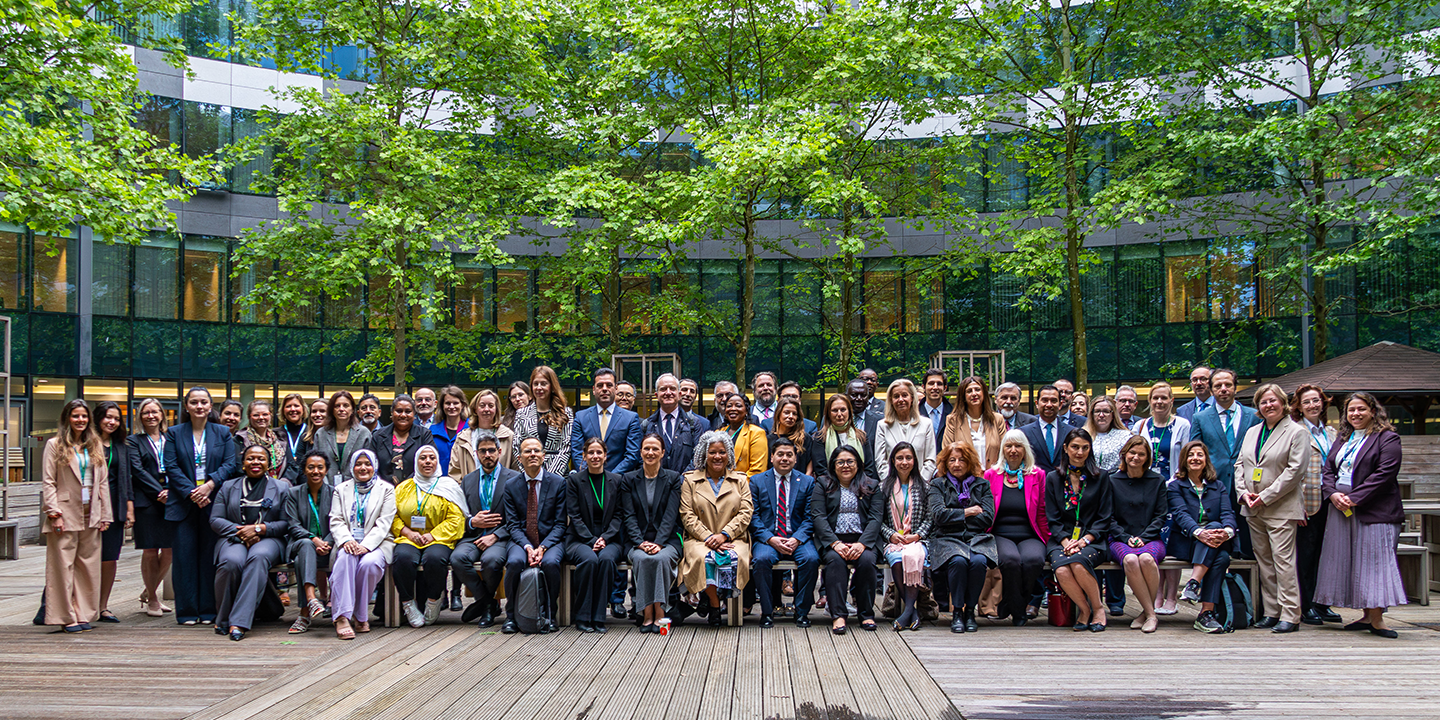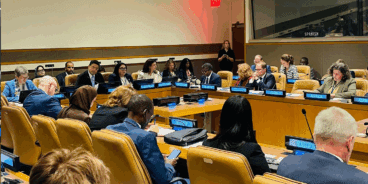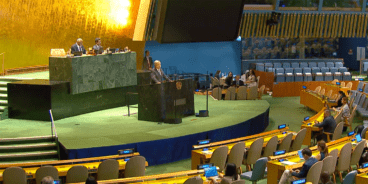

Joint Statement by members of the Global Network of R2P Focal Points on the 20th Anniversary of the Responsibility to Protect
The statement below is issued on behalf of members of the Global Network of R2P Focal Points. An R2P Focal Point is a senior official within a government who facilitates national mechanisms for atrocity prevention and promotes international cooperation by participating in the Global Network.
Twenty years ago, at the 2005 World Summit, all UN Member States committed to the Responsibility to Protect populations from genocide, war crimes, ethnic cleansing and crimes against humanity. This landmark political commitment marked a turning point, affirming that states have a responsibility to protect their populations from genocide, crimes against humanity, war crimes and ethnic cleansing, including the prevention of such crimes, and that the international community should, as appropriate, encourage and assist individual states in meeting that responsibility. Where a state is unable or unwilling to protect its population, the international community through the United Nations, has the responsibility to take appropriate diplomatic, humanitarian and other peaceful means, in accordance with the UN Charter.
Two decades later, the Responsibility to Protect remains an important framework for preventing atrocity crimes and protecting populations, especially the most vulnerable. The establishment of the Global Network of R2P Focal Points in 2010 helped operationalize this commitment. Today, the Network brings together over sixty R2P Focal Points – senior officials appointed to promote atrocity prevention at the national, regional and international levels. Through dialogue, exchanging best practices and practical cooperation, the Network has advanced the prevention agenda and strengthened the capacity of states to fulfill their protective responsibilities. Regular meetings of the Network, including the 11th annual meeting held in Brussels, Belgium, in May 2025, have provided a vital platform for exchange and collective learning.
Over the past twenty years, we have seen meaningful progress:
-
-
- The inclusion of atrocity prevention in national strategies and foreign policies;
- Greater investment in early warning and risk assessment mechanisms and tools;
- Stronger partnerships between states, regional organizations and civil society; and
- A growing understanding that preventing atrocities is not only a moral imperative but also essential to sustaining peace and development.
-
Yet, challenges remain. Around the world, civilians continue to bear the brunt of violent conflict and atrocity crimes. Political will to prevent atrocities and uphold international obligations is too often lacking. In some cases, there has been insufficient international consensus on the need for multilateral responses to unfolding crises. As we mark the 20th anniversary of R2P, it is clear that our shared commitment must translate more consistently into action.
We reaffirm that atrocity prevention is a responsibility that belongs to all states, at all times – not only when crises escalate, but through sustained efforts to build inclusive, resilient and rights-based societies. National R2P Focal Points have a critical role to play in reinforcing the awareness of R2P within governments, coordinating prevention efforts across institutions and serving as bridges between national, regional and international actors.
The Global Network of R2P Focal Points remains an essential platform to exchange good practices, confront common challenges and maintain political momentum. As global threats become more complex and intertwined, international cooperation is more vital than ever. In commemorating this important anniversary, we renew our commitment to the principles of the Responsibility to Protect and to working collectively to make atrocity prevention a lived reality for all.
Members of the Global Network of R2P Focal Points
| Albania | Czech Republic | Italy | Netherlands | Slovenia |
| Angola | Denmark | Japan | New Zealand | South Africa |
| Argentina | DRC | Jordan | Nigeria | Spain |
| Australia | Finland | Kenya | Paraguay | Sweden |
| Austria | France | Liberia | Peru | Switzerland |
| Bosnia and Herzegovina | Georgia | Liechtenstein | Poland | Tanzania |
| Botswana | Germany | Lithuania | Portugal | Timor-Leste |
| Bulgaria | Ghana | Luxembourg | Qatar | United Kingdom |
| Cambodia | Greece | Mexico | Republic of Korea | United States |
| Chile | Guatemala | Montenegro | Romania | Uruguay |
| Costa Rica | Hungary | Morocco | Rwanda | European Union |
| Côte d’Ivoire | Ireland | Mozambique | Sierra Leone | Organization of American States |
| Croatia |
Related Content


The Responsibility to Protect at 20: Reaffirming Our Collective Commitment to Prevent Atrocity Crimes
